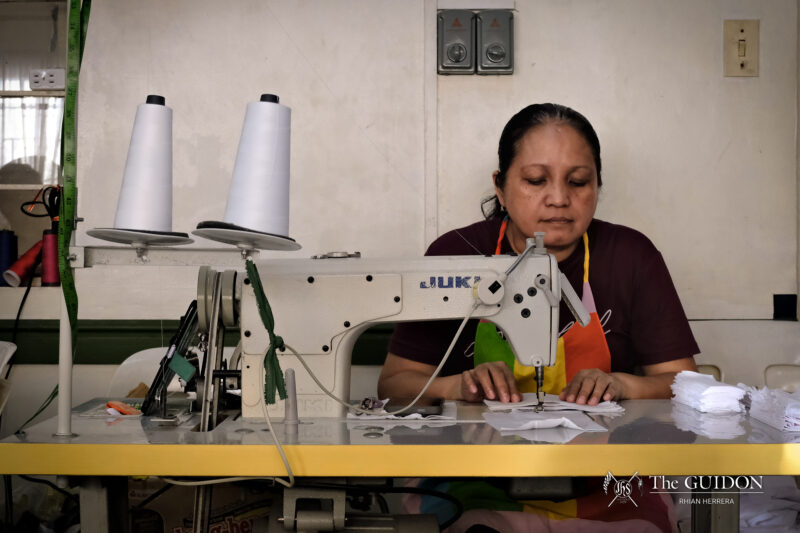Nobody watches television on TV anymore. Why bother? Traditional viewing on a television set involves having to sit through commercials, and waiting a week for the next episode of your favorite show. Not to mention that broadcasted content is often censored, leaving fans with watered-down versions of Game of Thrones or True Blood. It’s no wonder that more and more people have turned to watching programs on their devices instead.
As instructor from the Communication Department Estelle Marie Ladrido puts it, audiences’ mentality now goes along the lines of: “I just wanna watch what I want when I can.” The emergence of digital television streaming websites such as Netflix, iflix, and locally, iWantTV, has allowed people to do just that, with a convenient and legitimate way to watch their favorite programs on their devices. The network of torrenting hosts has been running into more and more trouble, with the popular Popcorn Time having shut down, and others possibly following. The idea of a legal option to watch shows commercial-free at one’s own pace has then become increasingly appealing.
It appears that this momentous development has provided television with the direction the medium will take for the foreseeable future. As music streaming had its share of difficulties with this change, the changes in the television industry will soon show, especially in the Philippines, where Netflix has just become available. The future of the medium has arrived, and whether or not it’s for better or for worse, it’s here to stay.
It all began with a pilot
Internet television started in 1995, with the very first live streaming event in history. ESPN SportsZone streamed a live radio broadcast of a baseball game between the Seattle Mariners and the New York Yankees worldwide to thousands of its subscribers using cutting-edge technology of that time. Thus came the birth of RealNetworks, a global leader in Internet media delivery. Other streaming services followed, such as Netflix in 1997, Amazon Prime in 2005, and Hulu in 2007.
The shift in entertainment consumption finds rooting in our increasingly fast-paced and digitalized lifestyles. The International Data Corporation in 2014 reports that smartphone penetration is growing faster in the Philippines than in Indonesia and Vietnam combined, and both local and international streaming services have been grabbing at the opportunities.
South East Asia’s leading Internet television service, iflix, has done just that. Its country manager in the Philippines, Sherwin dela Cruz, shares that widespread access to the Internet across all markets brings about a radical change in the way users consume entertainment. Ladrido adds that the changes in television in general have always been in response to the demand for commercial-free content.
Dela Cruz explains that since iflix is app-based, the convenience of instant access on multiple devices is a major plus point. He adds that game-changing features such as Download and Watch Offline specifically addresses the needs of a local market. There is a shift in viewing culture, from scheduled and pirated entertainment consumption to watching multiple episodes of a television series in rapid succession, or binge-watching on-the-go. He says, “Being able to pick up from where you stopped is a convenience [people] soon can’t do without.”
As of the moment, however, not all programs that are available abroad are ready to be streamed locally. Dela Cruz says a large part of the content distribution business is investing rights for content licensing, so streaming platforms are constantly adding to growing libraries to cater to viewers. Ladrido adds that this unequal distribution of content has to do with anticipated regulation or censorship and with the possibility that some cultural sensibilities may be offended.
Variety for viewers
Digital television further fragments audiences who consume media content, as more and more niche markets are being reached. Dela Cruz says that the video-on-demand model complements traditional television by giving its audience freedom from program scheduling and advertisements, allowing users to watch what they want, wherever they want, on multiple devices. Ladrido says “it’s narrowcasting rather than broadcasting.”
Platforms like iflix cater to a wider audience through supporting content such as independent, award-winning films and local mainstream movies. This content is not only available for viewing in the country, but in other regions in Asia where iflix is present as well, from Malaysia to the Middle East.
Filipinos should also be expecting some new local content to be released, as iflix will be providing original content. Dela Cruz says this “supports local filmmakers who would otherwise not receive the same reinforcement in a more traditional or mainstream market.” Digital streaming means that more opportunities are open for not just viewers, but for television content producers as well.
On the other hand, marathoning or binge-watching could also lead to an entertainment culture where streaming becomes more of an individual experience rather than a shared one. Ladrido says this is the largest impact digital streaming services have provided for us.
She elaborates, “Television was a shared space where people would gather and talk,” as friends and family would all watch the same thing at the same time. She says that perhaps the idea of that space is now challenged.
On the next episode
Although it is a bit early to make any definitive conclusions about the impact of the transition to digital television, one interesting development will be how piracy of television shows will be affected. Though there has been no foolproof solution created to tackle this issue, digital streaming sites have their own ways of preventing the measure. Netflix’s pricing system throughout the world varies based on piracy statistics on each country, theorizing that low prices will make it easier to discourage pirates from continuing to download illegally.
Dela Cruz suggests that the measures the streaming websites are taking, such as offering low prices, will help dissuade viewers from taking the illicit route. However, Ladrido’s take is less optimistic. “The thing with digital media is that it’s easy to [transfer]… It’s not too far a jump to imagine making that available for uploading and downloading,” she says. As she points out, the fact that the medium now comes in digital formats has made piracy so convenient, whether or not people intend to practice or promote it.
Whatever the consequences these online television services will have on piracy, it is clear that this will be the future of TV. With that in mind, changes in the way some aspects of the television industry can be expected. Shows such as Arrested Development, which airs exclusively on Netflix, are written to be binge-watched by rewarding viewers with jokes and easter eggs that can only be understood if multiple episodes are watched in one sitting.
This is not to say that viewing television traditionally, on a television set in the living room, will go away completely. “Free-to-air and pay TV will always have an audience,” concedes dela Cruz, citing live programming such as sports and news shows as examples. The extent of how digital streaming will affect television remains to be seen, but one cannot deny that it is indeed changing. As the transition unfolds, one thing’s for sure—audiences’ eyes will remain glued to their screens.
What do you think about this story? Send your comments and suggestions here: tgdn.co/2ZqqodZ







